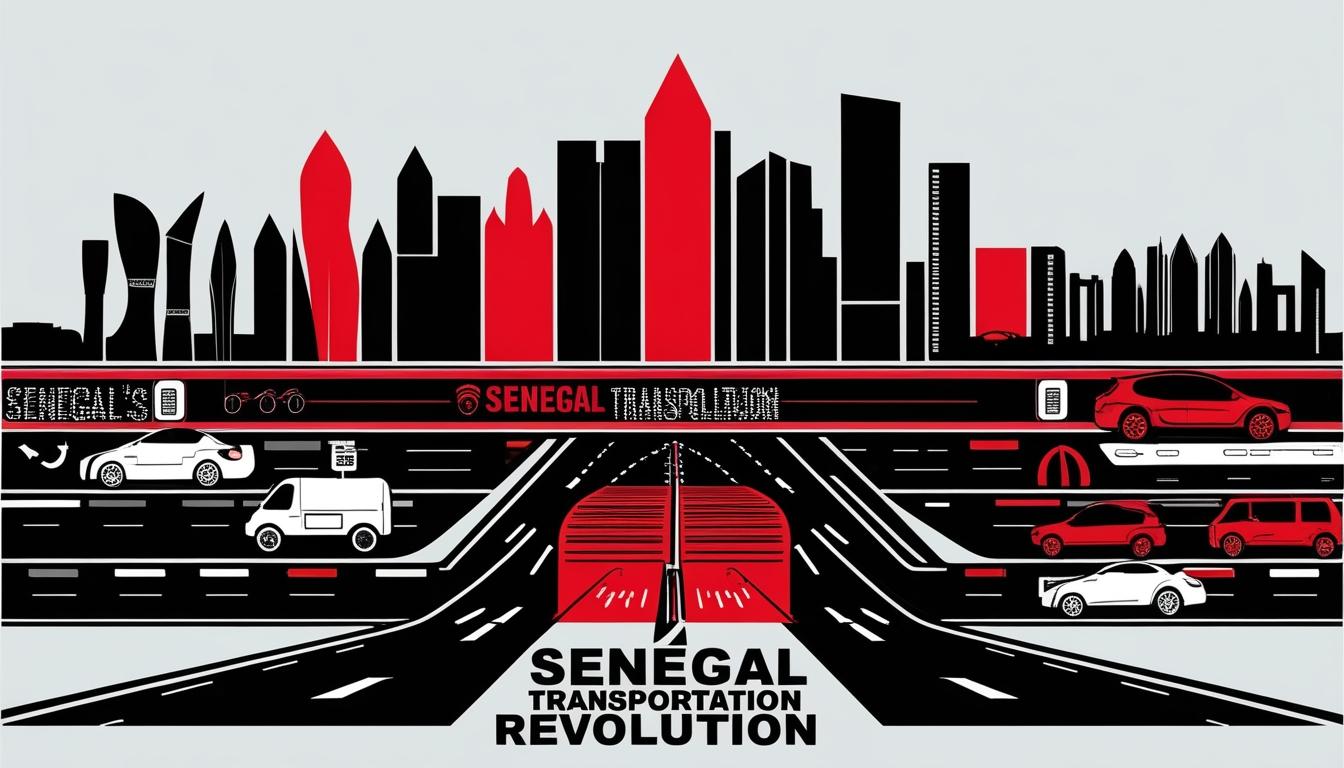As urbanisation accelerates across Africa, cities are increasingly confronted with the challenges of managing traffic, ensuring road safety, and mitigating environmental impacts. Senegal, a West African nation recognised for its cultural vibrancy and economic aspirations, has initiated a transformative approach to urban mobility through the implementation of Intelligent Transportation Systems (ITS). This innovative strategy aims to enhance the efficiency and safety of transport, while simultaneously driving economic growth and sustainability in urban areas.
The capital city, Dakar, exemplifies the challenges associated with rapid urbanisation, grappling with a population exceeding 3 million. The city's residents experience significant daily traffic congestion, compounded by road accidents, environmental pollution, and inefficient public transport systems. The emergence of ITS offers a strategic solution, harnessing technology and data analytics to tackle these issues comprehensively.
Senegal’s pursuit of ITS aligns with the broader objectives outlined in the Plan Sénégal Émergent (PSE), a developmental framework focused on infrastructure improvement, digitalisation, and sustainability. By embedding ITS into urban transport networks, Senegal aims to modernise its infrastructure, enhance safety measures, and reflect global trends towards the establishment of smart cities.
The ITS framework established in Senegal comprises several key technologies and applications designed specifically to navigate the urban challenges faced by the nation. Advanced traffic management systems, powered by real-time data, have been implemented across Dakar and other cities, dynamically adjusting traffic signals to alleviate congestion and optimise vehicle flow. Furthermore, significant advancements have been made in public transportation through the installation of Bus Rapid Transit (BRT) systems, which utilise GPS tracking, automated fare collection, and passenger information technologies to enhance service efficiency and promote a transition to sustainable transport methodologies.
To bolster road safety, Senegal has integrated solutions such as speed cameras, automated enforcement systems, and incident detection mechanisms within its transport systems. These technologies are reinforced by data-driven public awareness campaigns aimed at fostering safer behaviours among drivers and pedestrians alike. In addition to these measures, digital parking management systems have been introduced to provide real-time updates on parking availability and facilitate cashless payment options, effectively reducing the congestion caused by motorists searching for vacant spaces. Environmental sustainability is also a focal point, with air quality sensors embedded within transportation networks to monitor pollution levels, supporting initiatives to lower emissions and embrace electric vehicle adoption.
The effective implementation of ITS in Senegal hinges on collaboration between government authorities, private sector stakeholders, and international organisations. The Senegalese government has collaborated with global ITS solution providers, development banks, and regional partners to secure funding and facilitate knowledge transfer, ensuring the successful implementation of these systems. Notably, the World Bank has played a crucial role in supporting Senegal's endeavour to establish smart transport corridors, while respected companies specializing in ITS technologies have contributed their expertise in system design and deployment.
Despite the potential benefits of ITS, the deployment of these systems in Senegal is not without challenges. The high costs associated with implementing and maintaining ITS infrastructure pose significant obstacles, particularly for developing nations like Senegal, which often face competing financial priorities. Data privacy and cybersecurity remain paramount concerns, as the reliance on data collection and analysis necessitates robust safeguards against potential cyber threats. Additionally, the success of ITS systems hinges on public trust and willingness to adopt new technologies, necessitating efforts to educate the populace about the advantages of these innovations.
Looking forward, the opportunities presented by ITS are substantial. The integration of these systems is projected to enhance economic productivity by minimising traffic delays and reducing fuel consumption. Furthermore, improved road safety features stand to save lives, while sustainable practices align with Senegal's environmental objectives.
As Senegal embarks on its journey with ITS, it serves as a model for other African nations facing similar urban transport challenges. By leveraging technology and fostering collaborative partnerships, Senegal illustrates that the adoption of smart transport solutions is not solely the ambition of developed nations. The prospective roadmap entails expanding ITS beyond Dakar into secondary cities, embracing emerging technologies such as artificial intelligence and autonomous vehicles, and promoting regional cooperation to establish a cohesive transportation network throughout West Africa.
Senegal's investment in ITS represents more than just a technological enhancement; it signifies a commitment to a future characterised by safe, efficient, and sustainable urban transport. Through the integration of ITS, Senegal is poised to not only improve its metropolitan areas but also inspire transformative change across the African continent.
Source: Noah Wire Services
